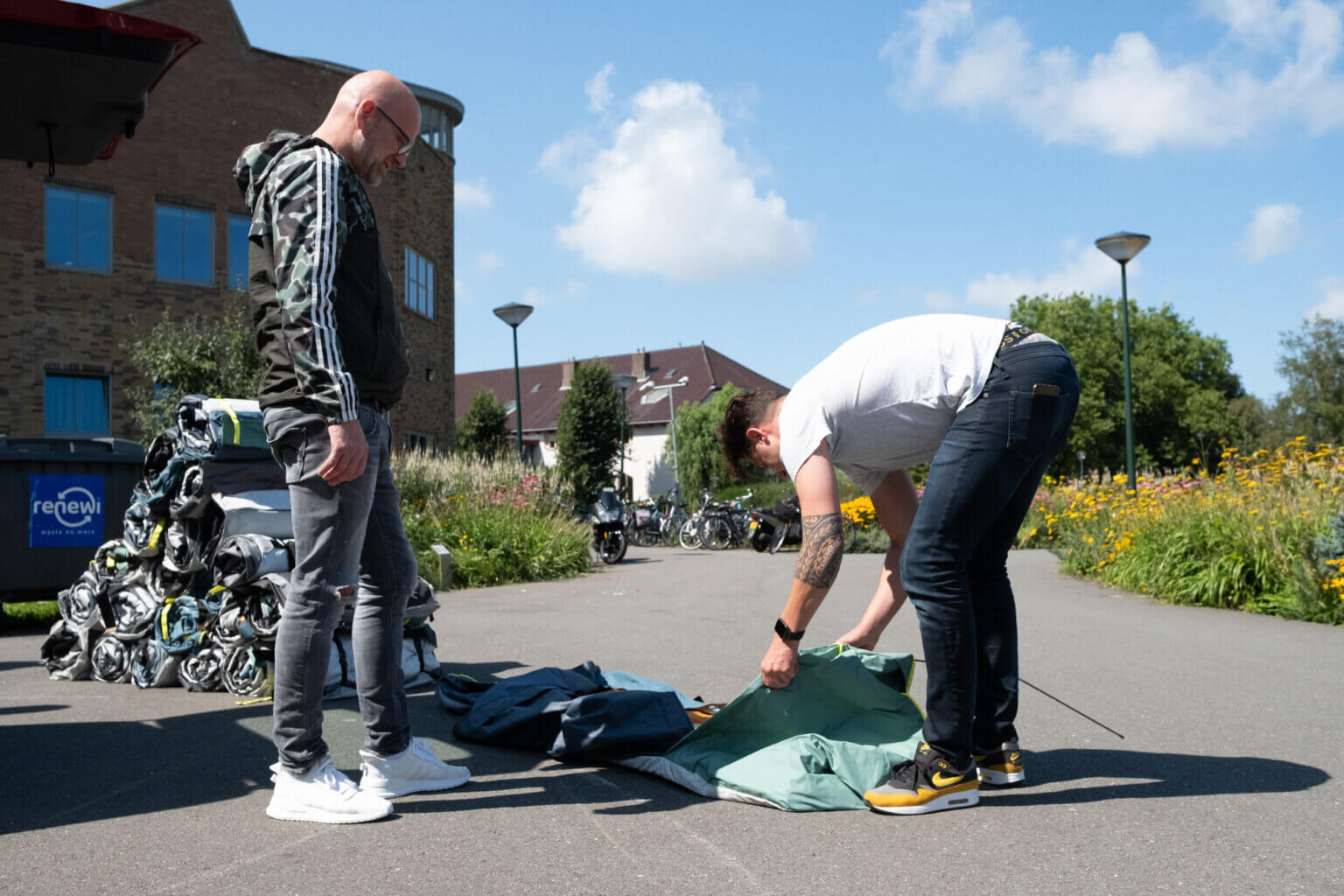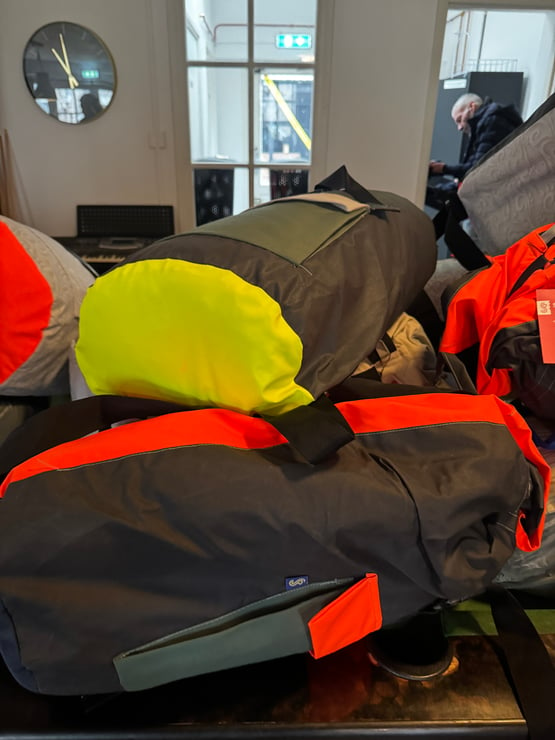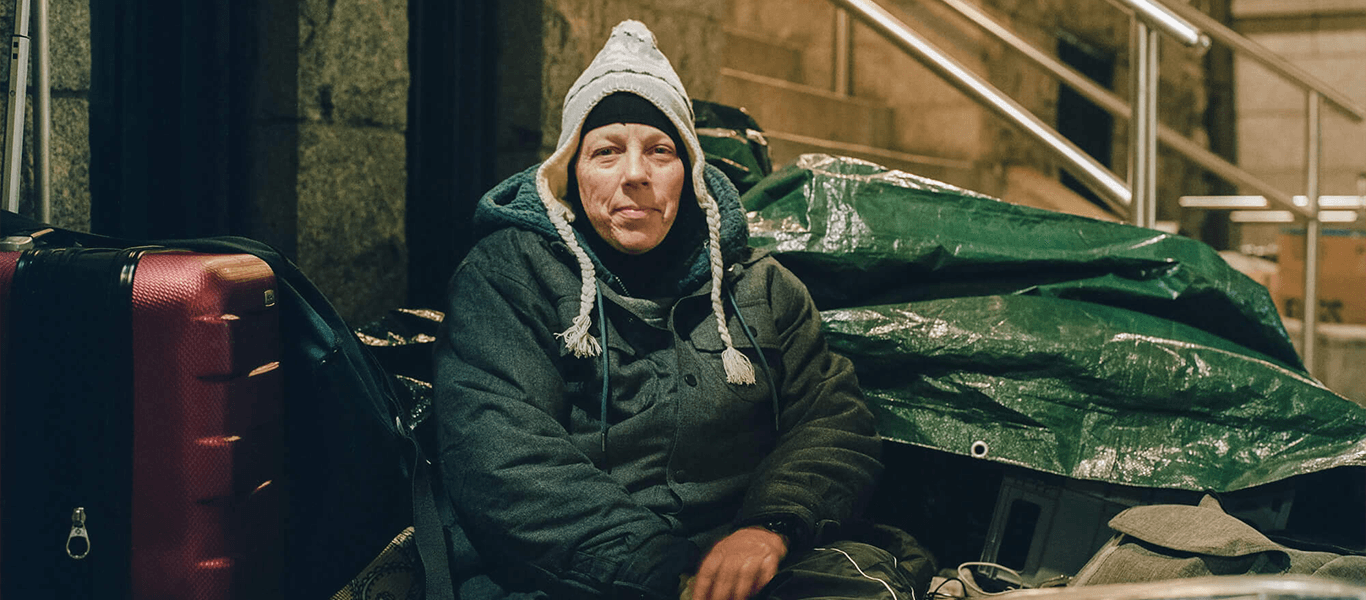In August the first Shelterbags with sleeping mats donated by Auping, were distributed in the Netherlands in the cities of Rotterdam, The Hague and Leiden. Working together with various homeless service providers, the Shelterbags will be distributed with care to people who are forced to spend the night outside.
The Sheltersuit Foundation and Royal Auping, a Dutch bed and mattress manufacturer, are both committed to a comfortable night’s sleep.
This shared mission, along with Auping’s experience in making mattresses from 100% recycled materials, formed the perfect alignment for this new collaboration.
Together we created a comfortable, lightweight and durable product; the Shelterbag with an Auping sleeping mat. A sturdy mat and waterproof summer sleeping bag combo, which rolls up into a lightweight bag. Auping supplied the built-in mat, which now allows 250 people to lie a little more comfortably.
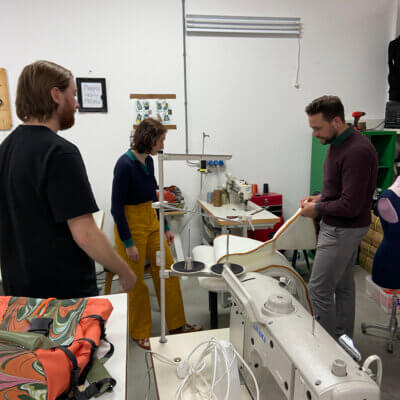
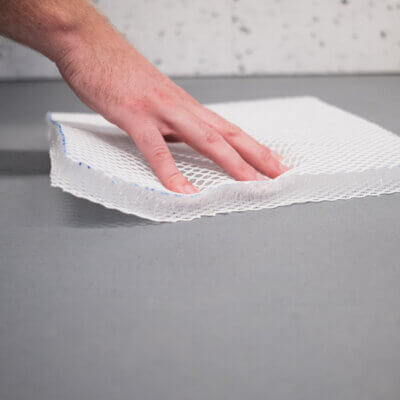
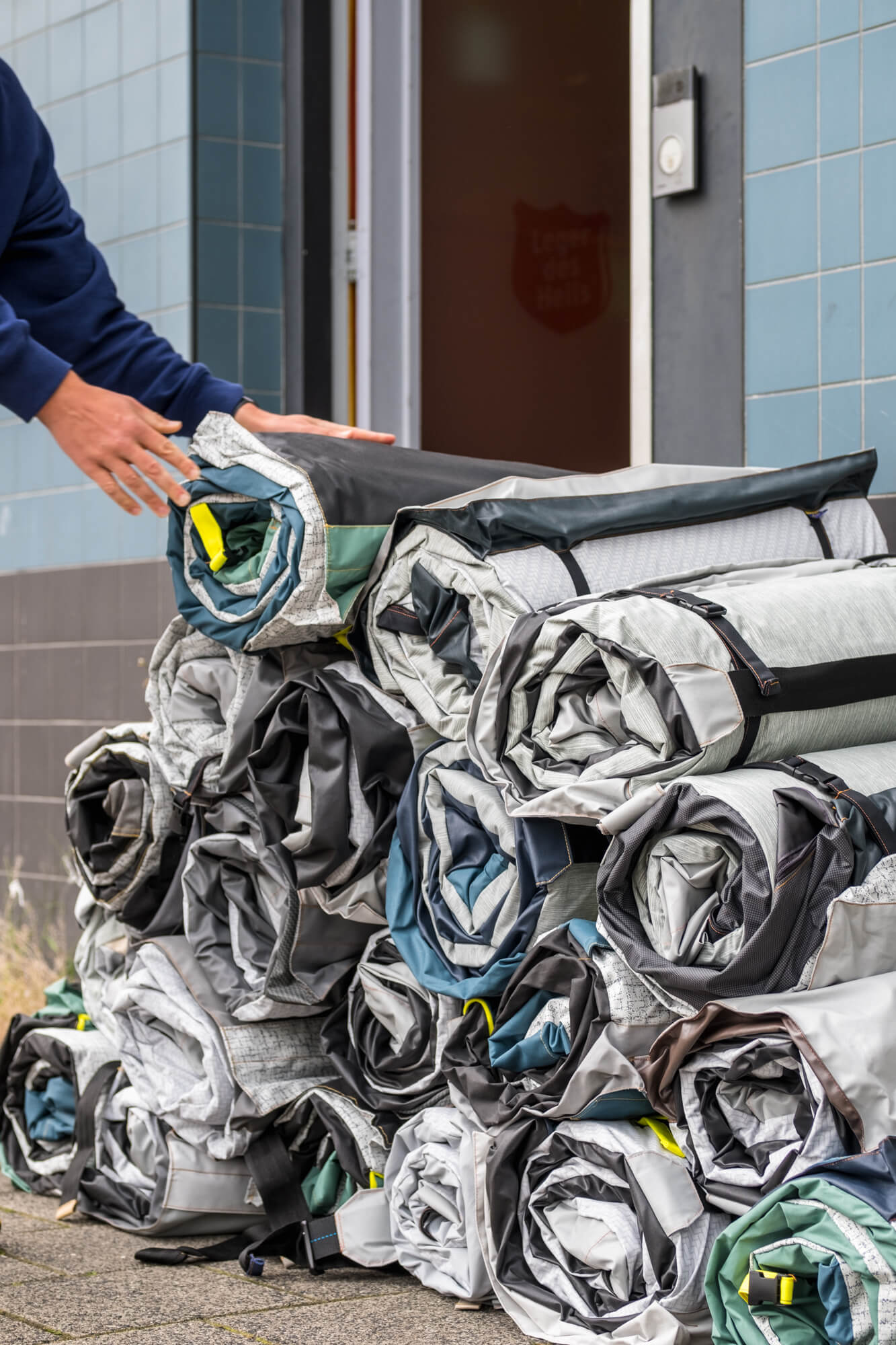
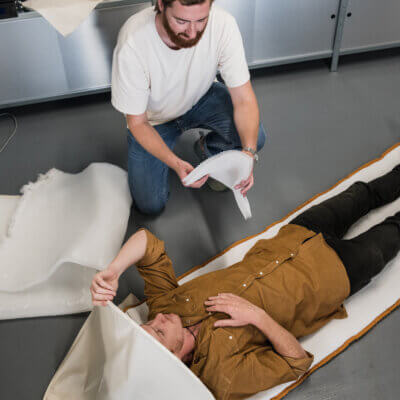
Last week in The Netherlands the first Shelterbags with the Auping mat were distributed. With the help of the Salvation Army in Rotterdam, Straat Consulaat in The Hague, and De Binnenvest in Leiden, we can be sure that the Shelterbags will be distributed with care to people who, for whatever reason, are forced to spend the night outside.
We collect feedback from recipients as well as aid agencies and field workers, to ensure that our added value is as high as possible.
Our intention is to establish a long-term collaboration with this project. The problem of homelessness in the Netherlands remains distressing. After the total number of homeless people in the Netherlands was supposed to have dropped (to 36,000) for the first time in ten years, the GGD recently requested 60,000 vaccinations for homeless people in the Netherlands.
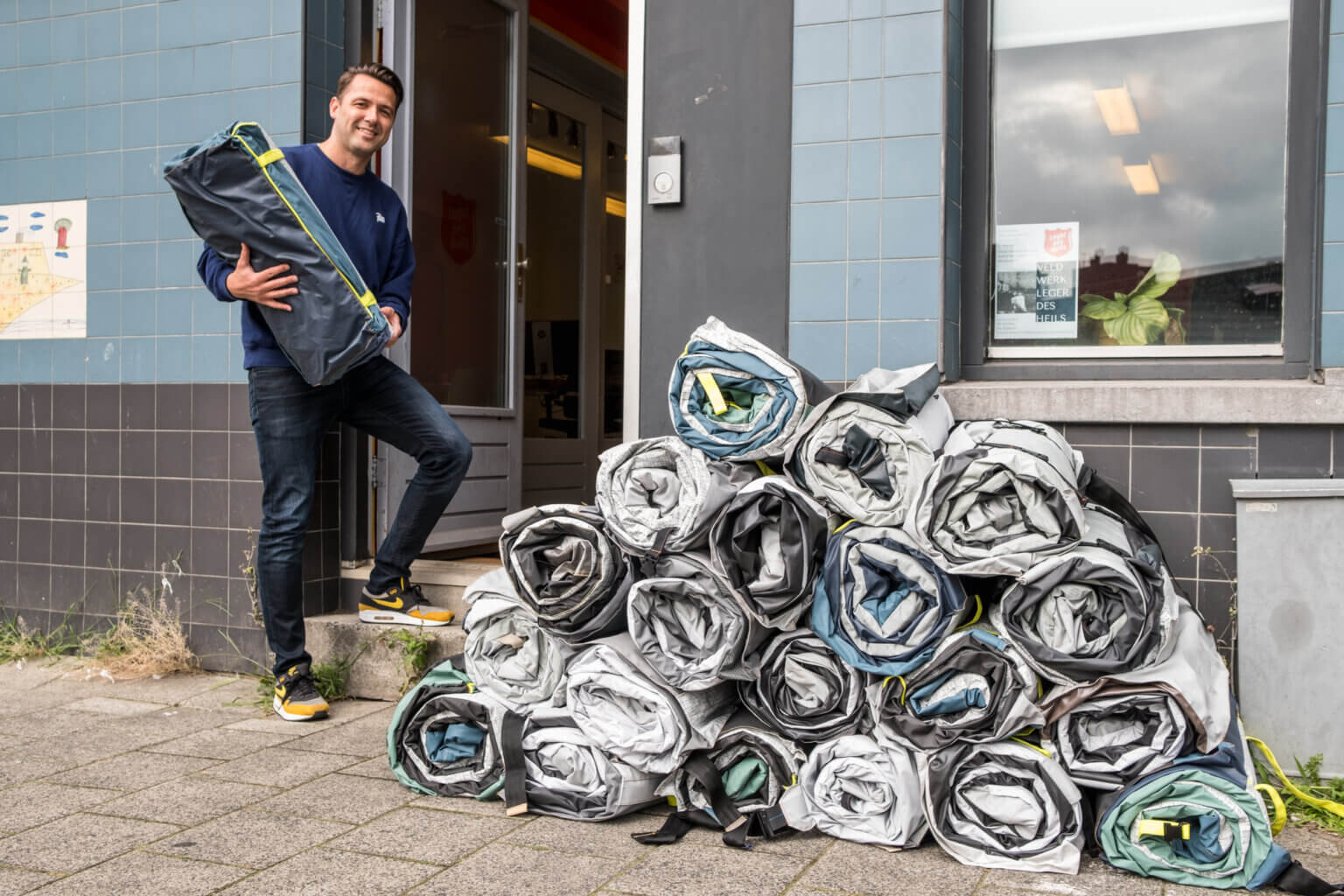

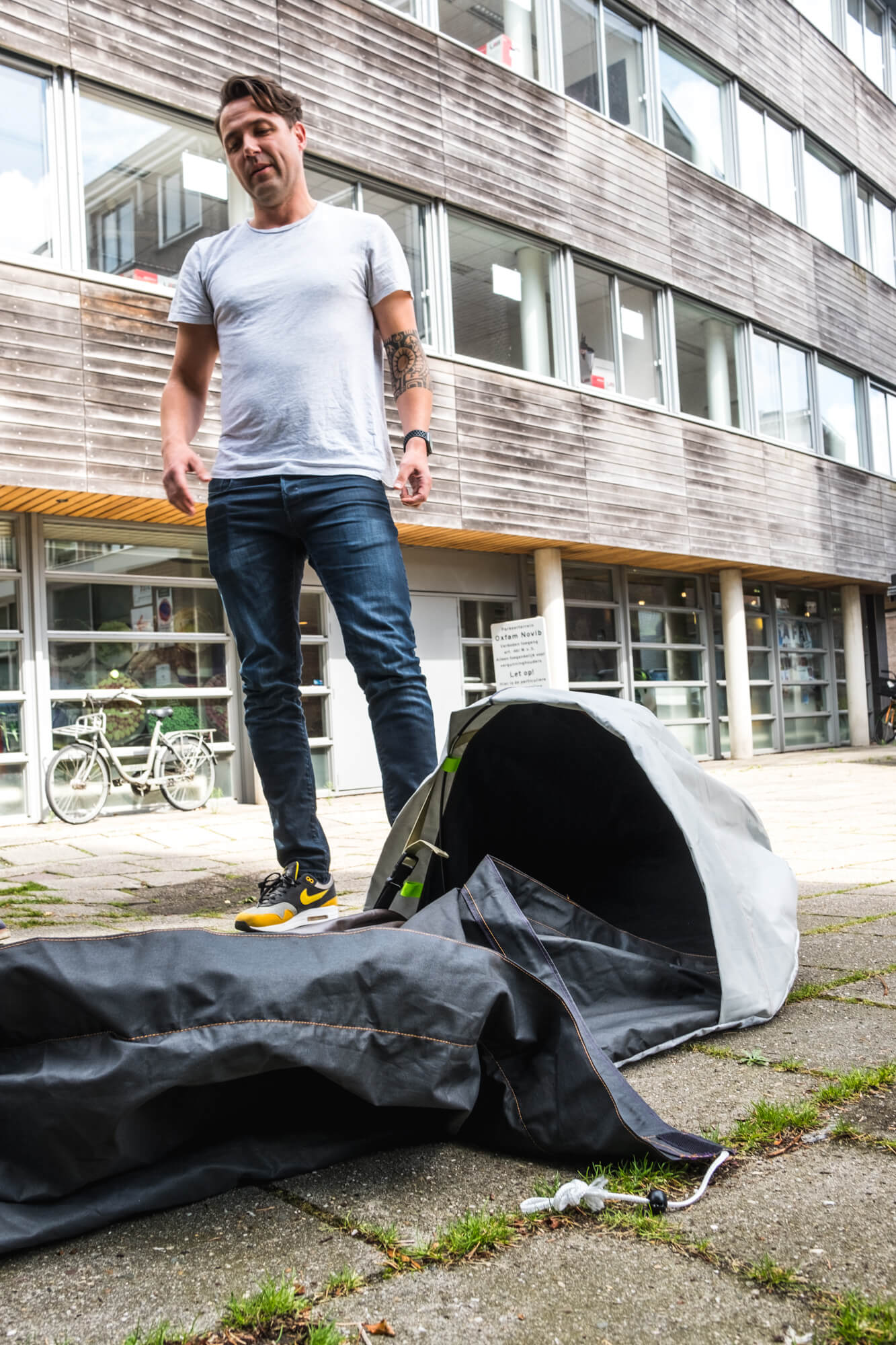
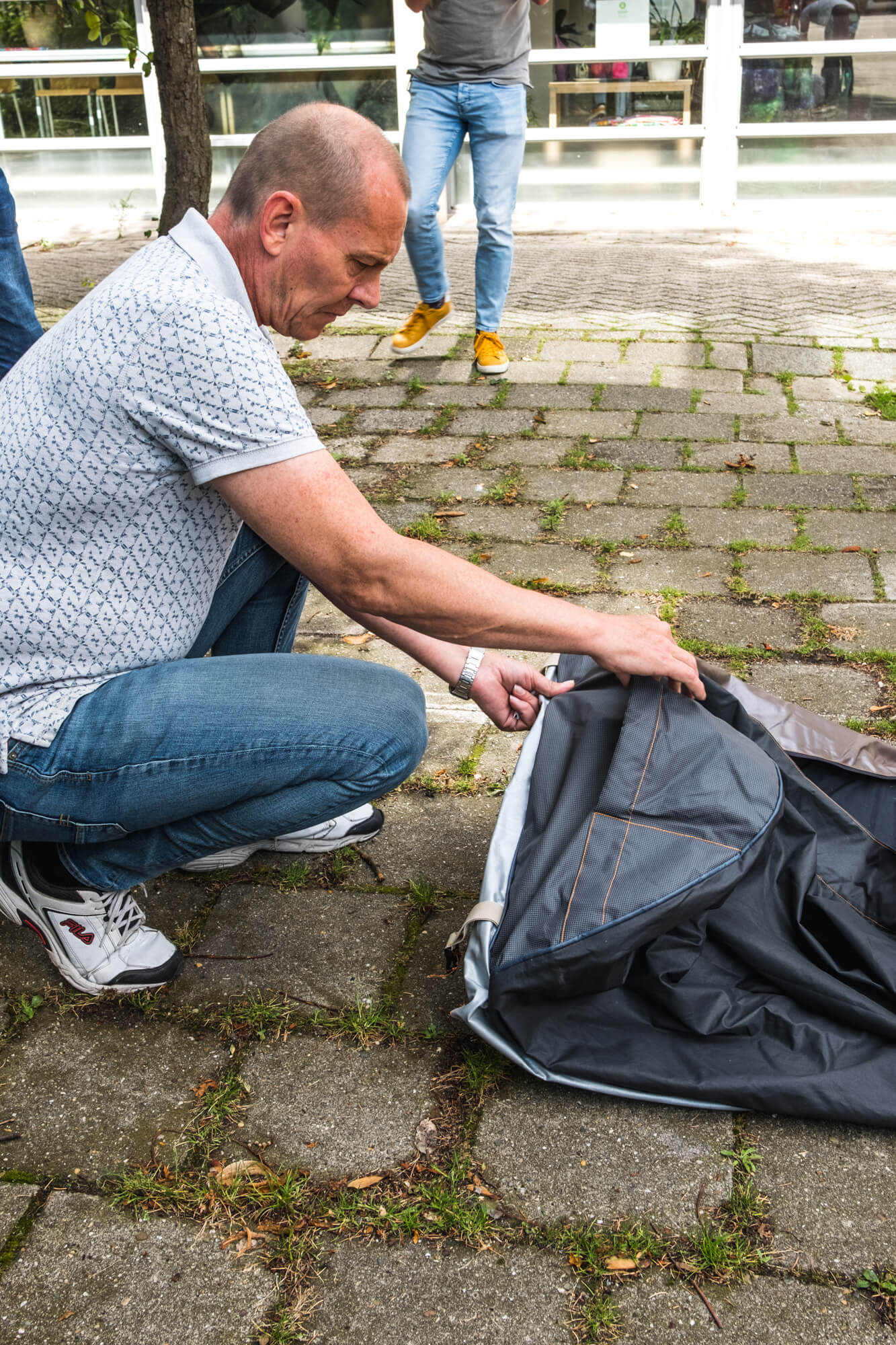
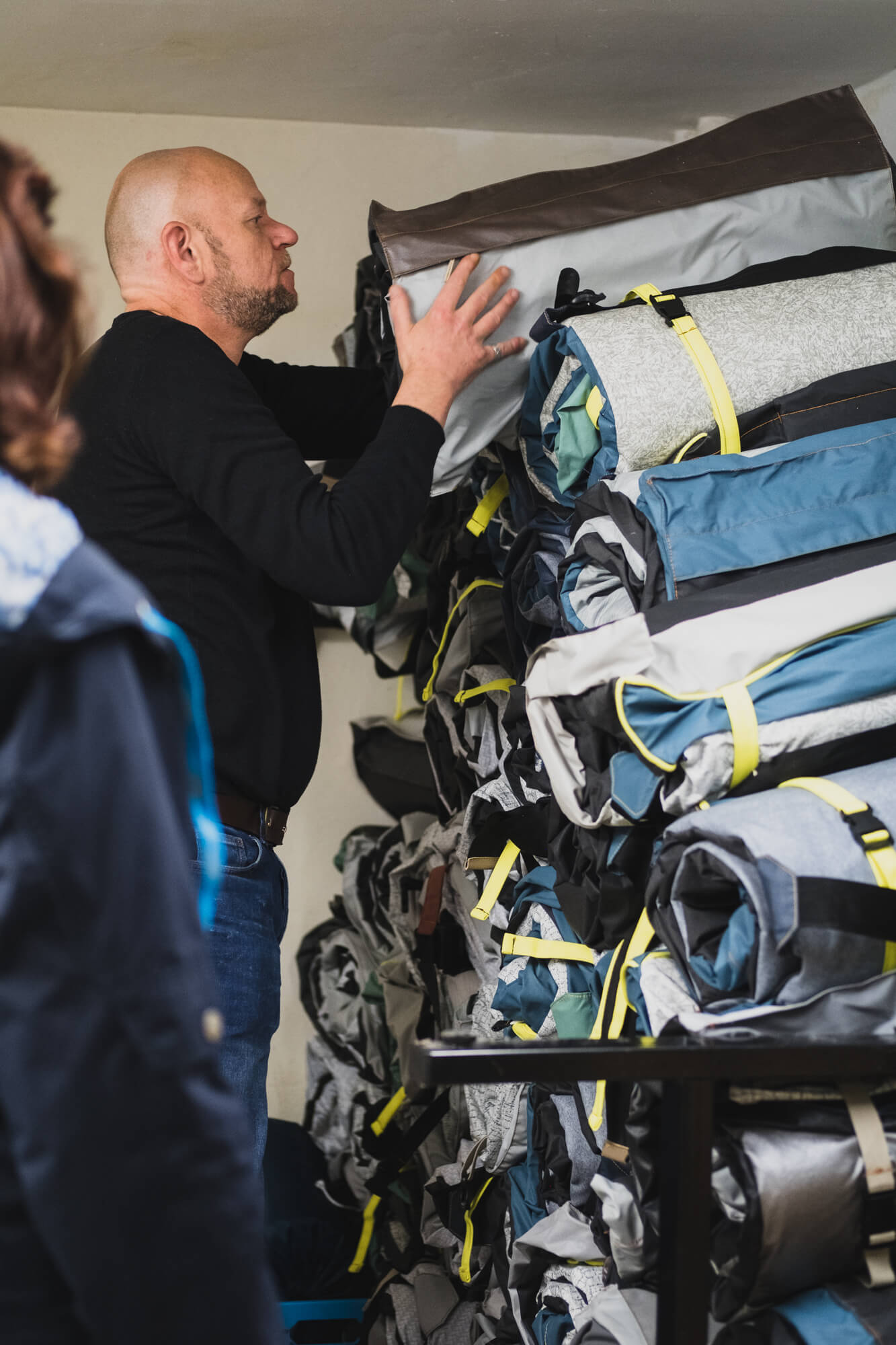
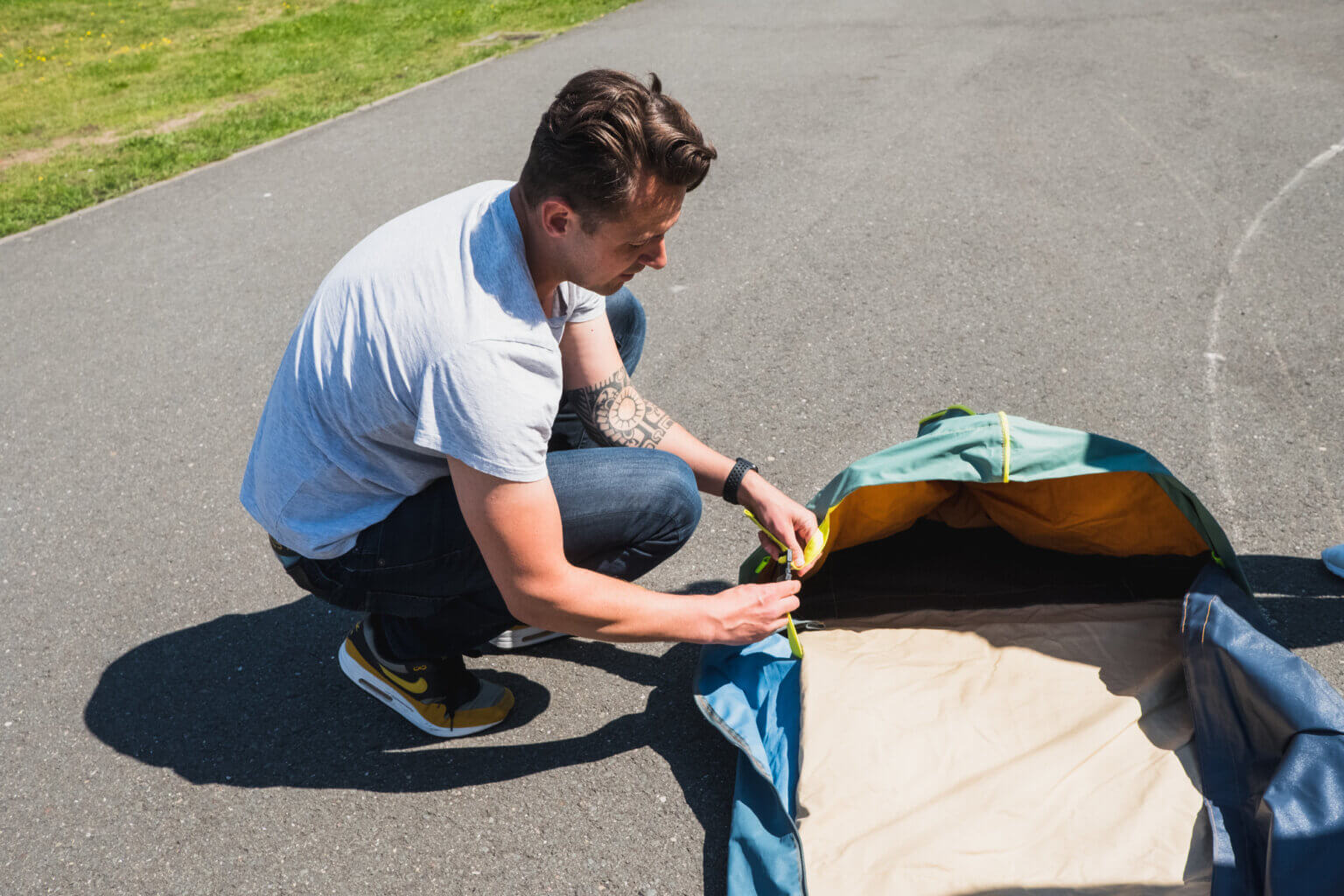
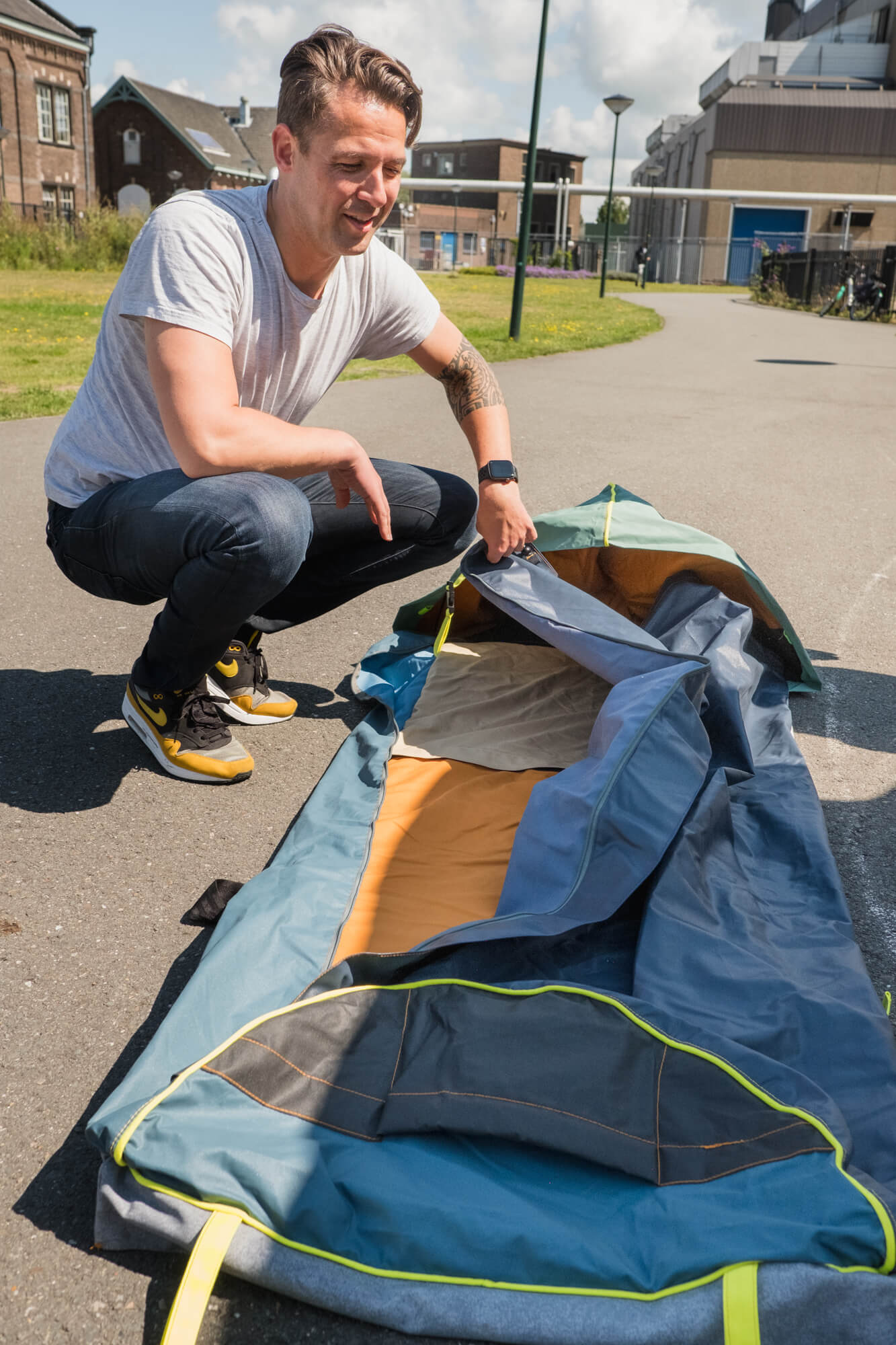
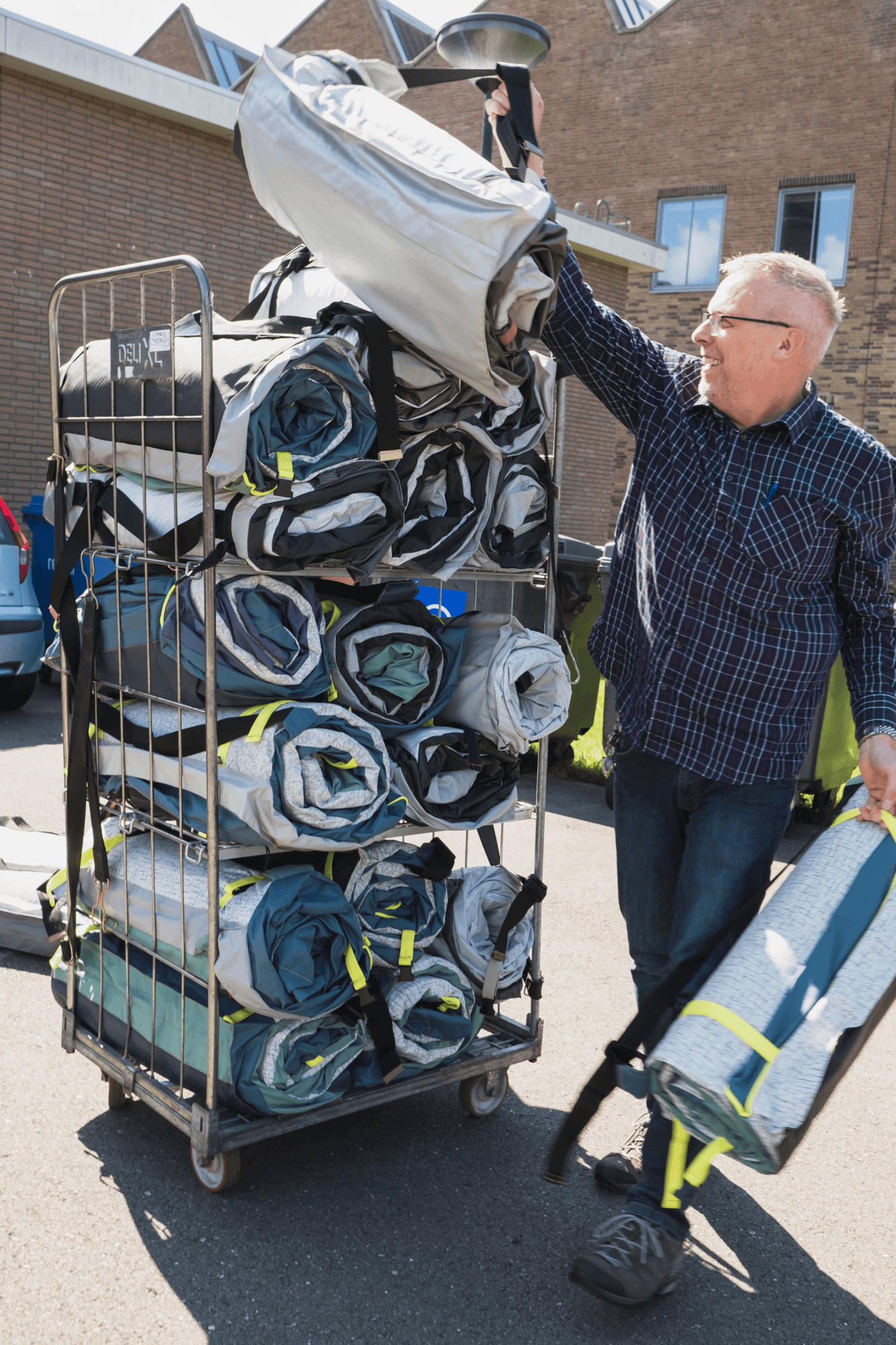
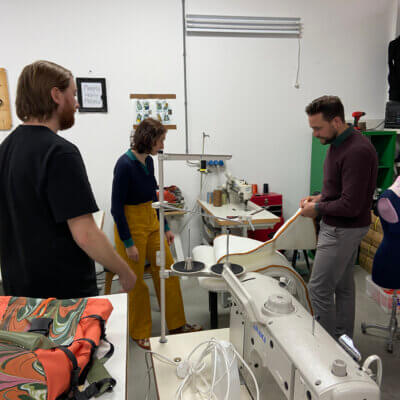
At Straat Consulaat in The Hague, we were welcomed by Joy. She tells us that a bed could be arranged for almost everyone at the beginning of the pandemic. The money came from the government, and people were accommodated in hotels. That time has passed again, she says.
“I have great respect for the people who sit at the entrance gate at the night shelter. They don’t enjoy telling people they don’t qualify for shelter. There is such a shortage of shelter, due to the endless housing shortage. People aren’t moving out, so at some point, people can’t move in either.”
Those refused at the shelter in The Hague, are referred to Joy and her colleagues at Straat Consulaat to get a Shelterbag. Aid worker Stefan: “We’ve really noticed in the last few weeks that there is quite a demand for tents, sleeping bags, and Shelterbags.”
“When it froze -10 last winter, we had a group of about 10 people who absolutely did not want to go inside. One woman was alone in a very thin sleeping bag and didn’t want any contact with anyone. She didn’t want any money. She didn’t want to have anything to do with anybody. At one point I saw her shivering in her sleeping bag, and I said: ‘Come, I’ll put you in a Shelterbag’. Then she was so happy, that when I came over the next morning with tea, we sat together looking at the snow for an hour. She still didn’t want to go inside, but she hadn’t frozen to death either.”
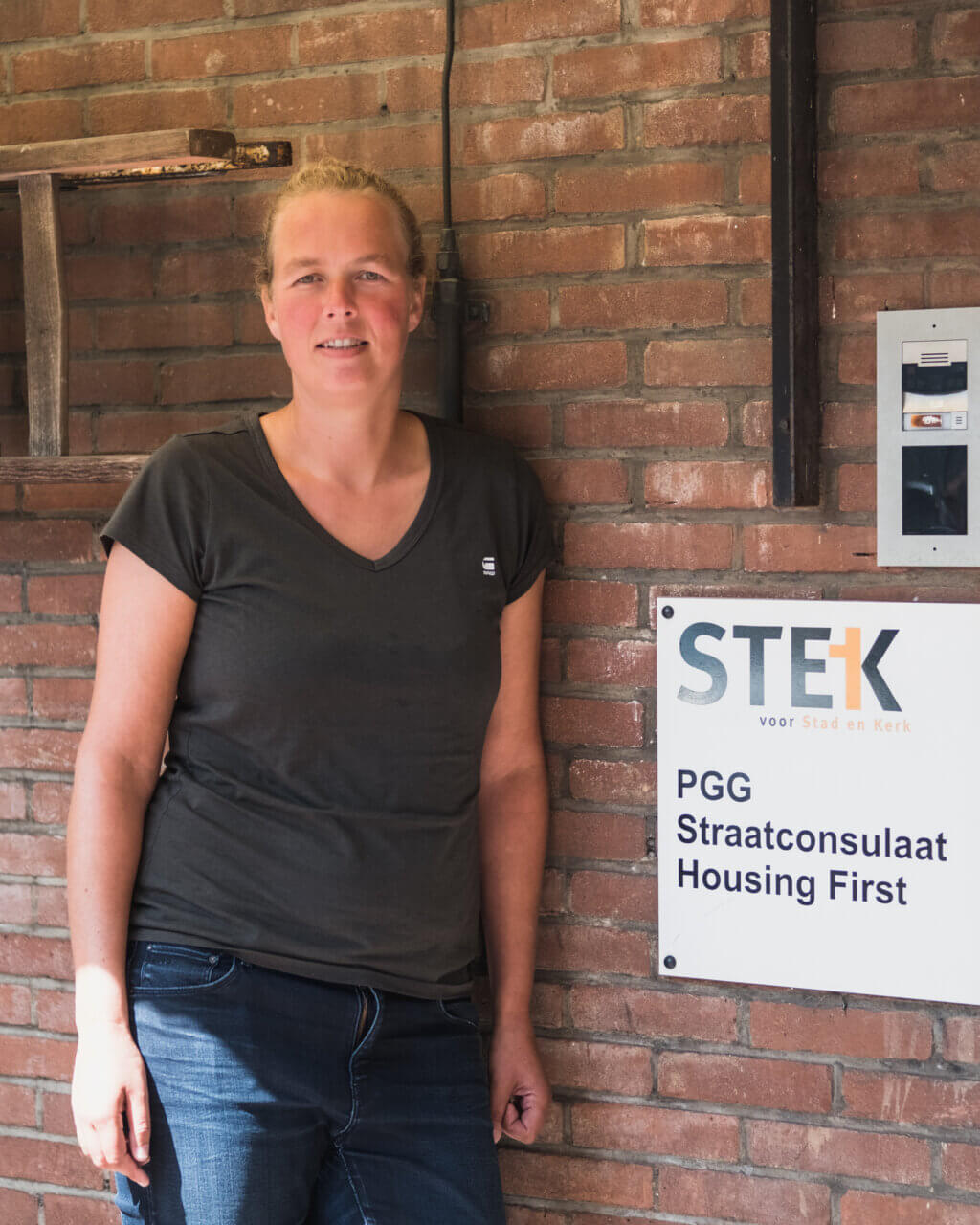
Straat Consulaat in The Hague employs experienced experts as volunteers. Patrick (46) was homeless in The Hague for five years. He slept in bushes and abandoned buildings. Then I bought a tent with my last money and slept in the dunes. I didn’t seek contact with anyone. I was ashamed.”
Experts Jeroen, Patrick and Irena
“You don’t want to be seen with a tent and sleeping bag during the day. Being homeless is not something you like to show off.”
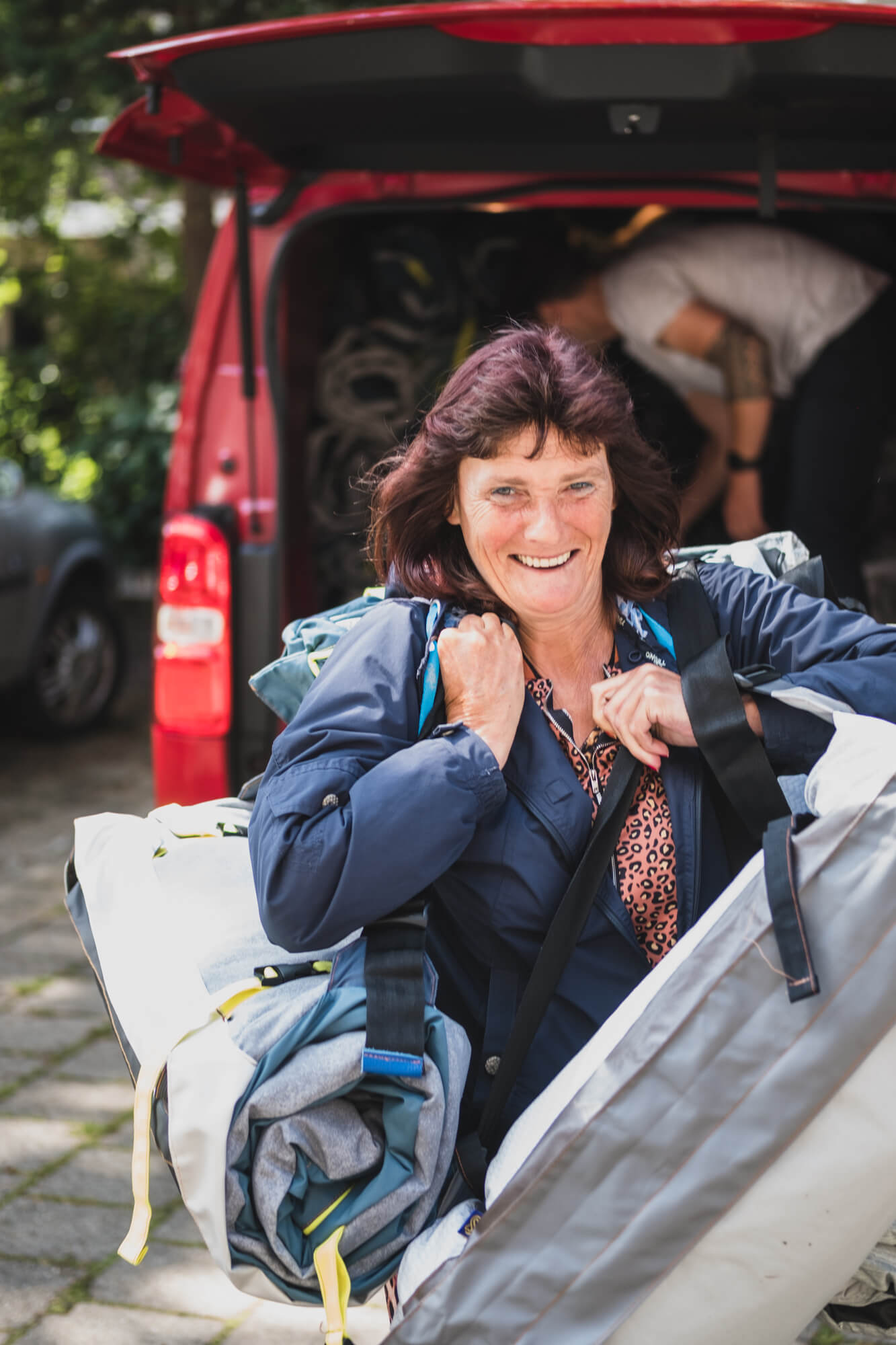
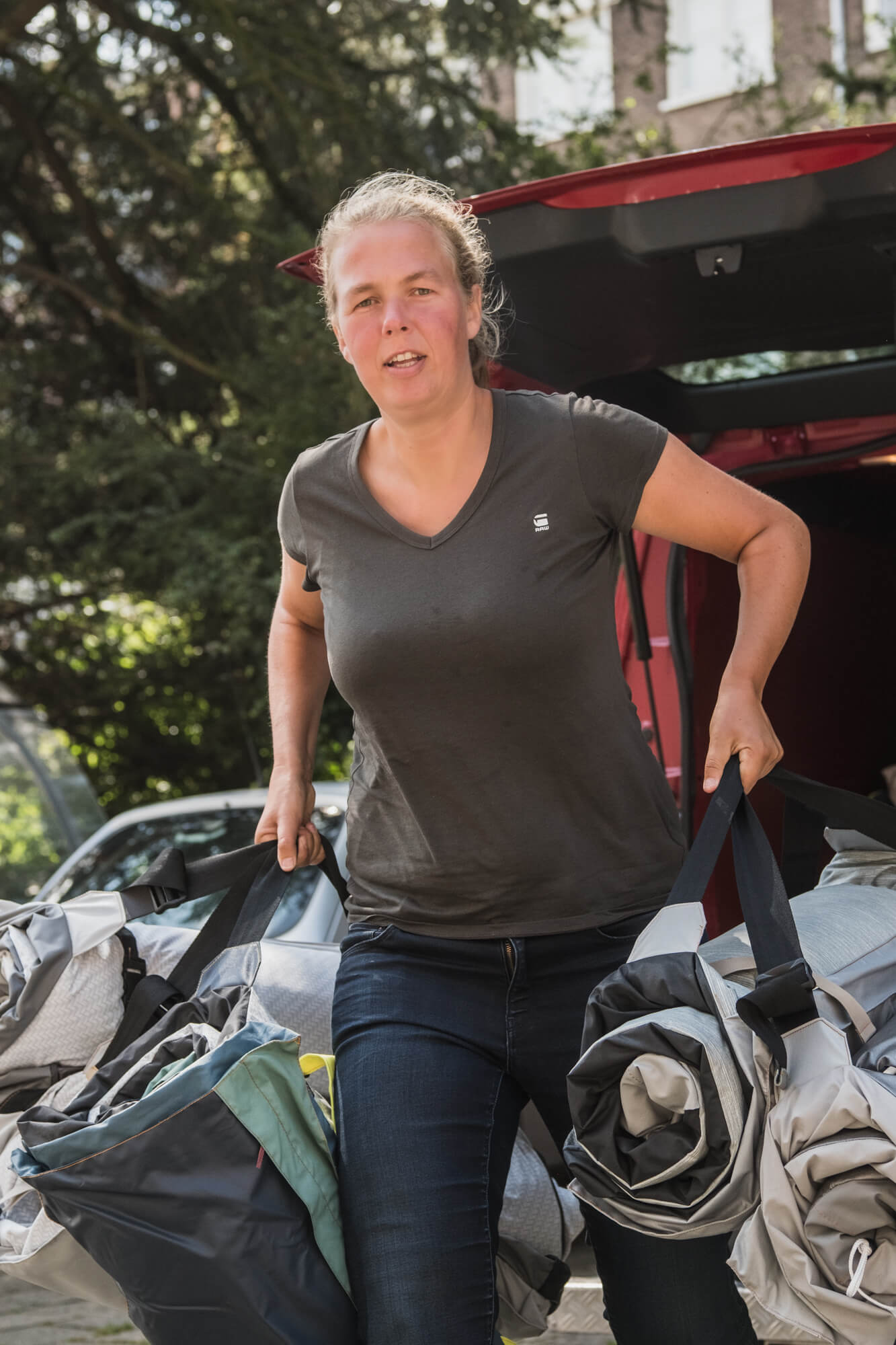
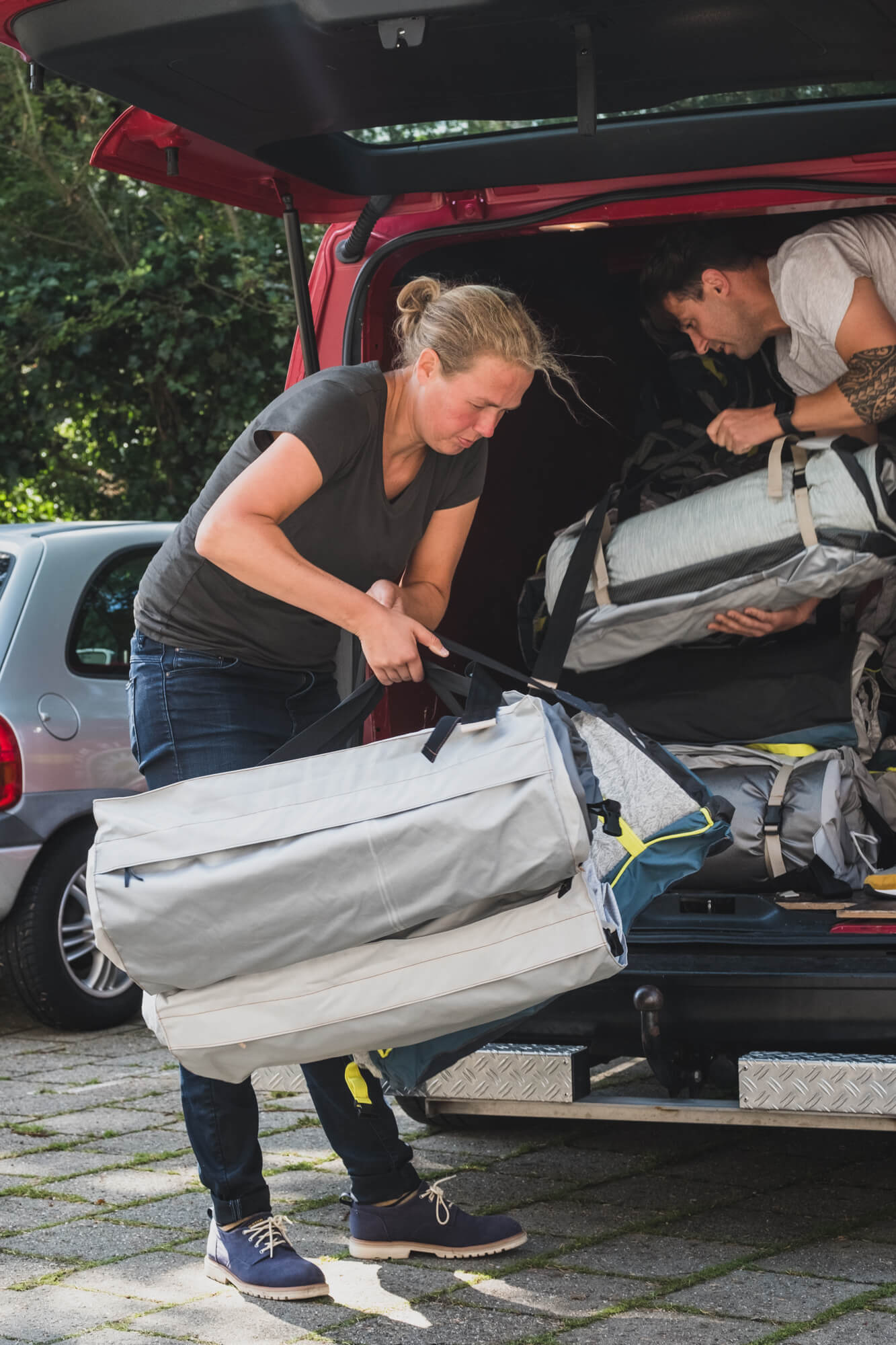
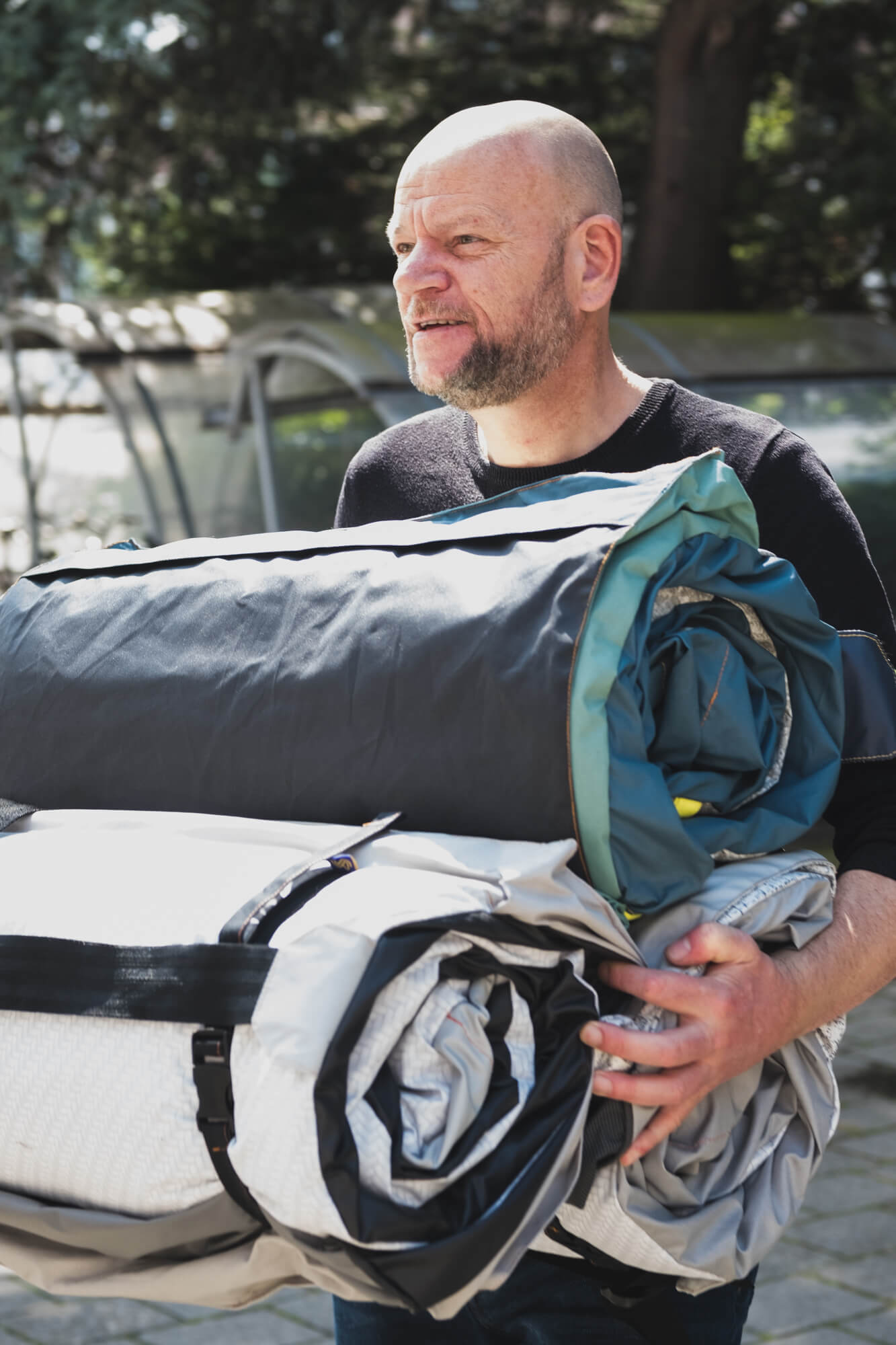
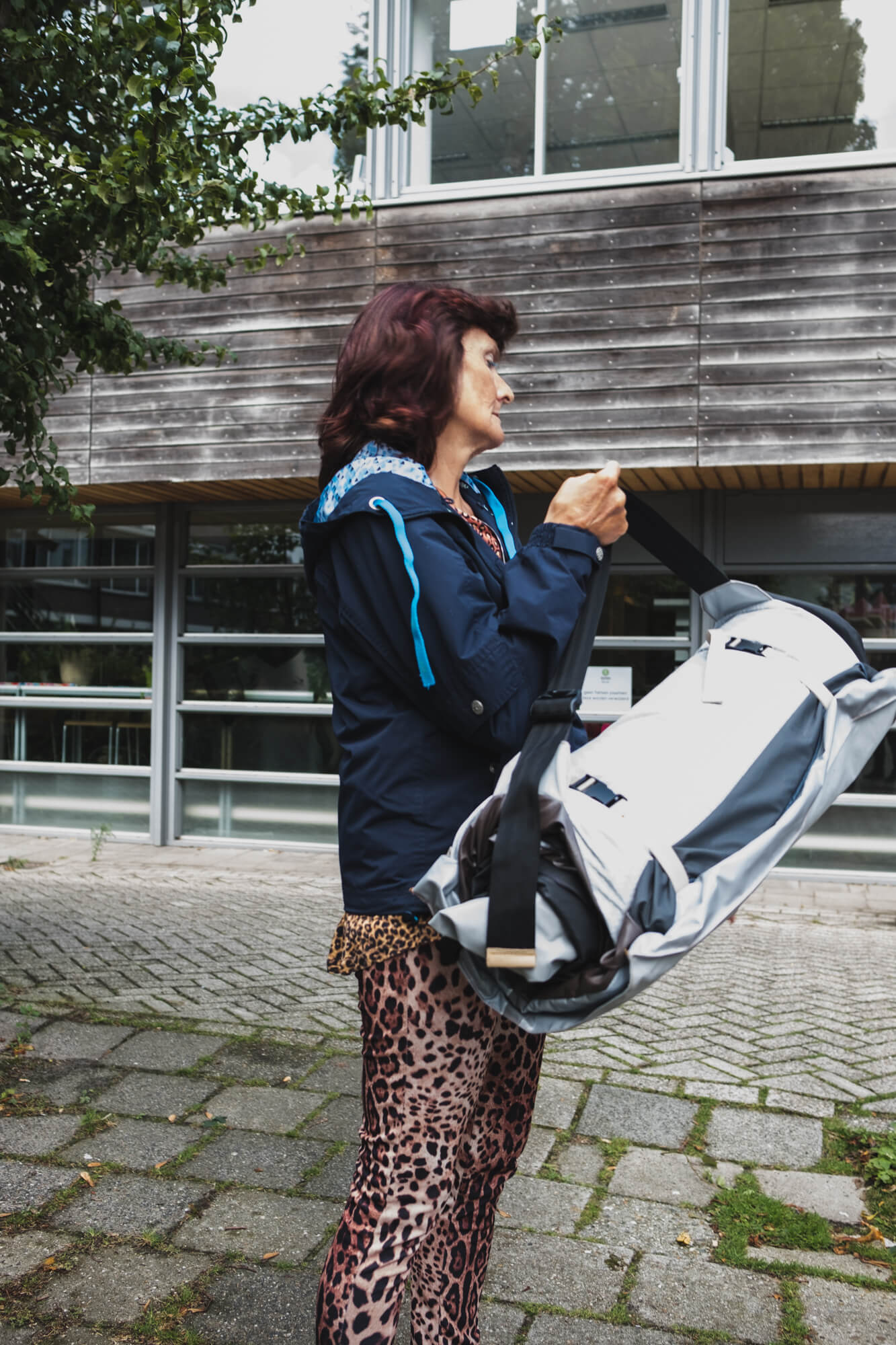
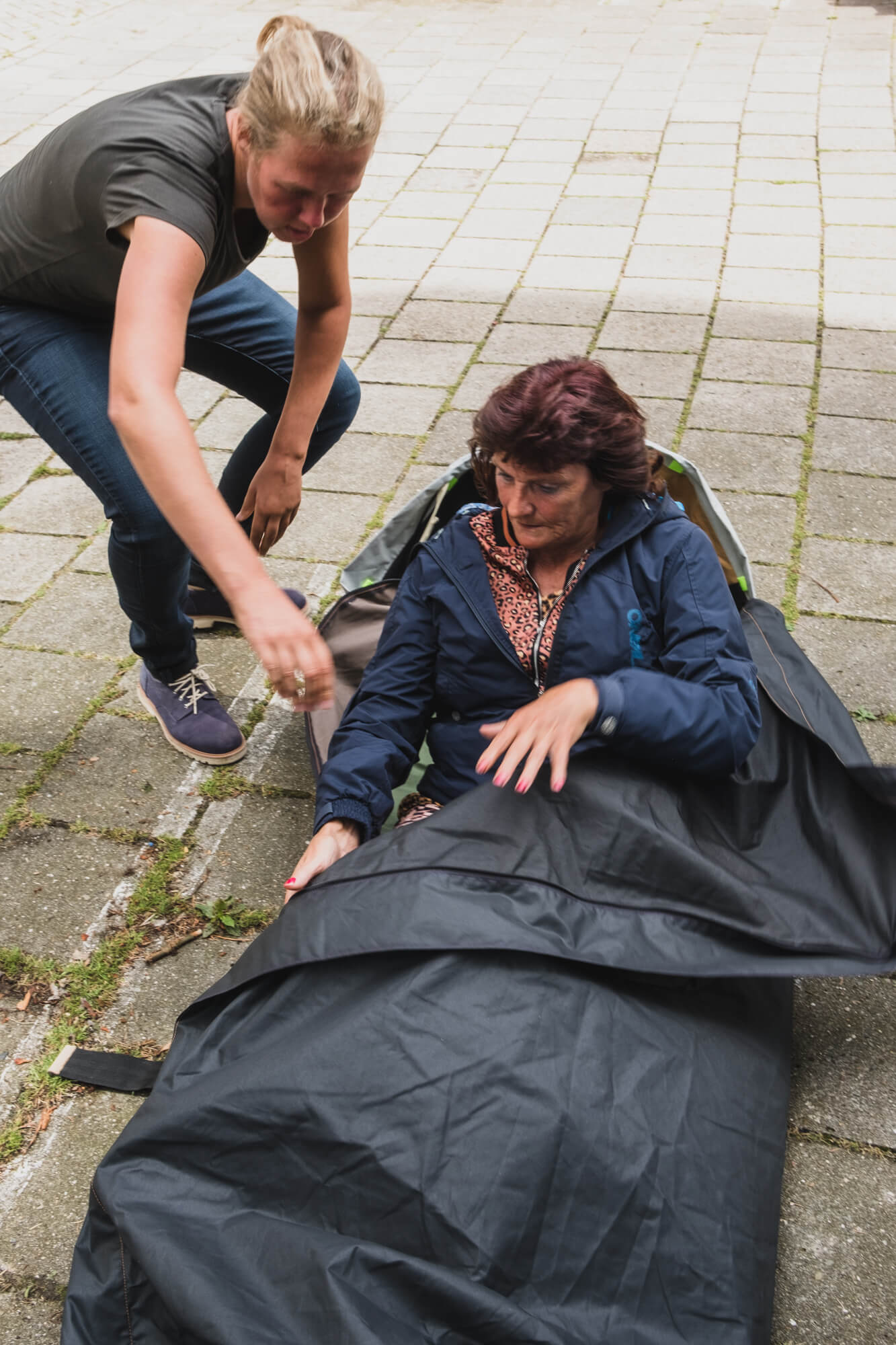
Anne Wietske has been working as a field worker at the Salvation Army in Rotterdam for 3 years.
“You often see that people who don’t like the shelter, because you have to share the space with 20 or 30 people, especially can’t handle the number of stimuli. Those are the people we like to give a Shelterbag to.”
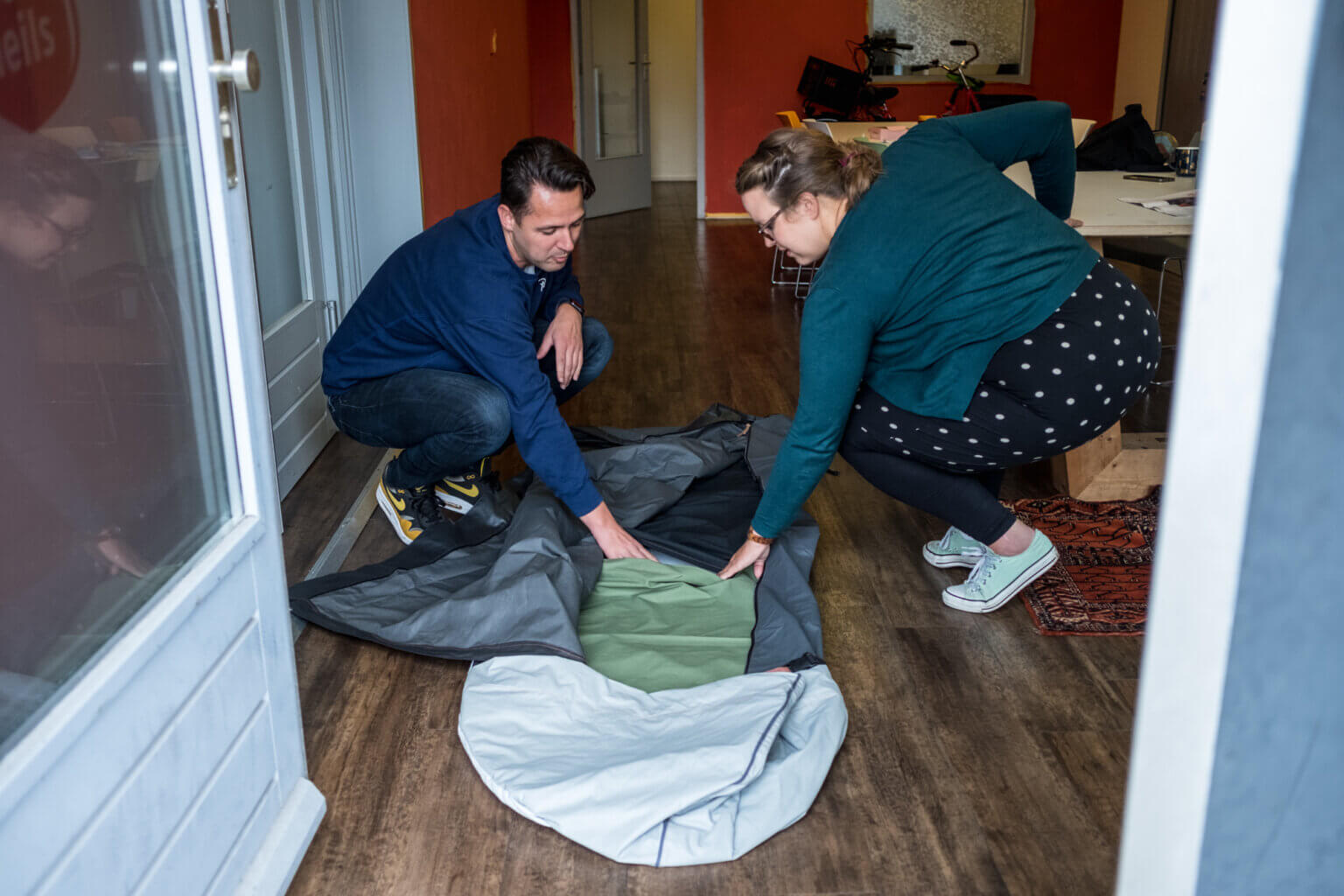
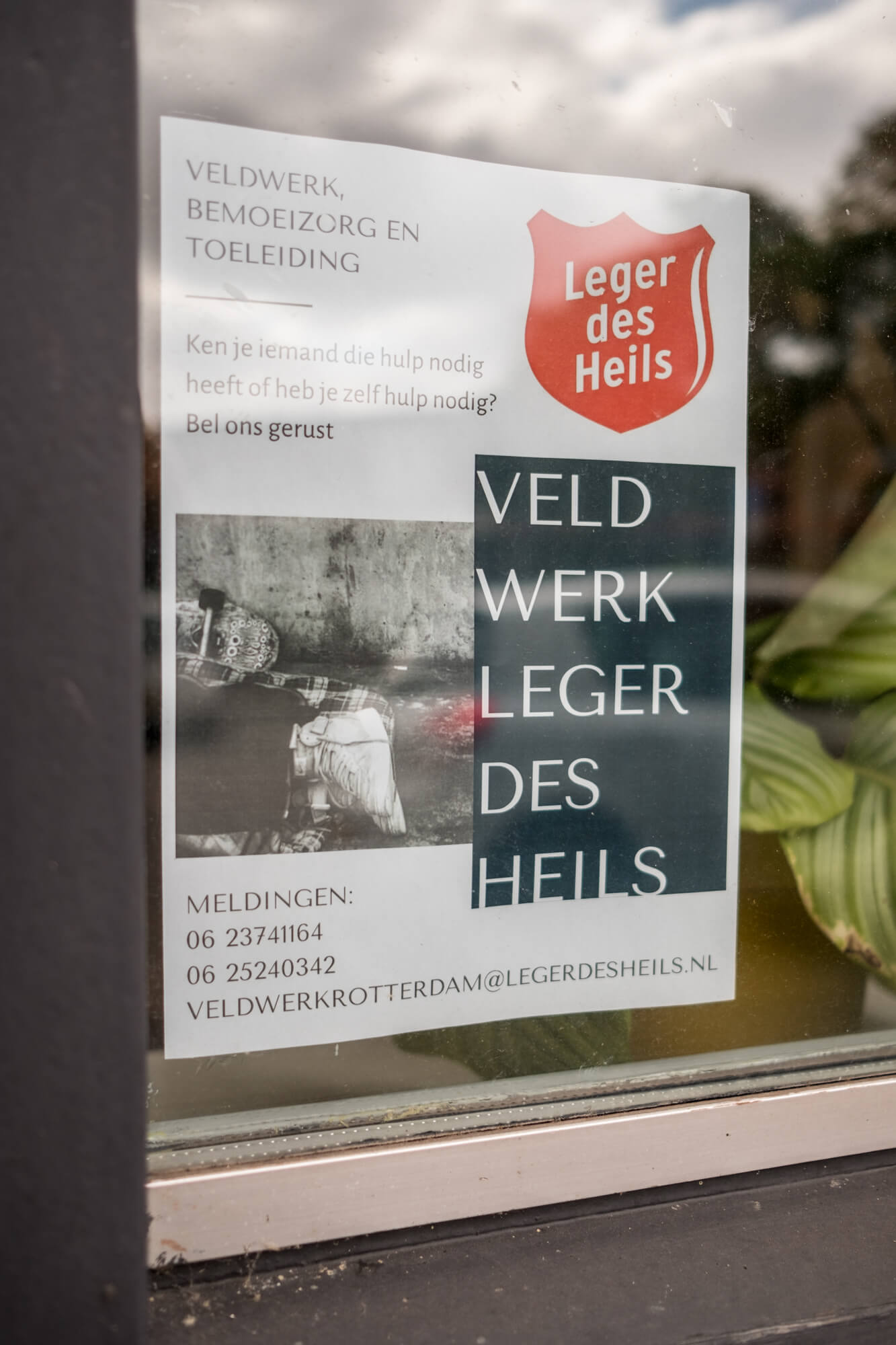
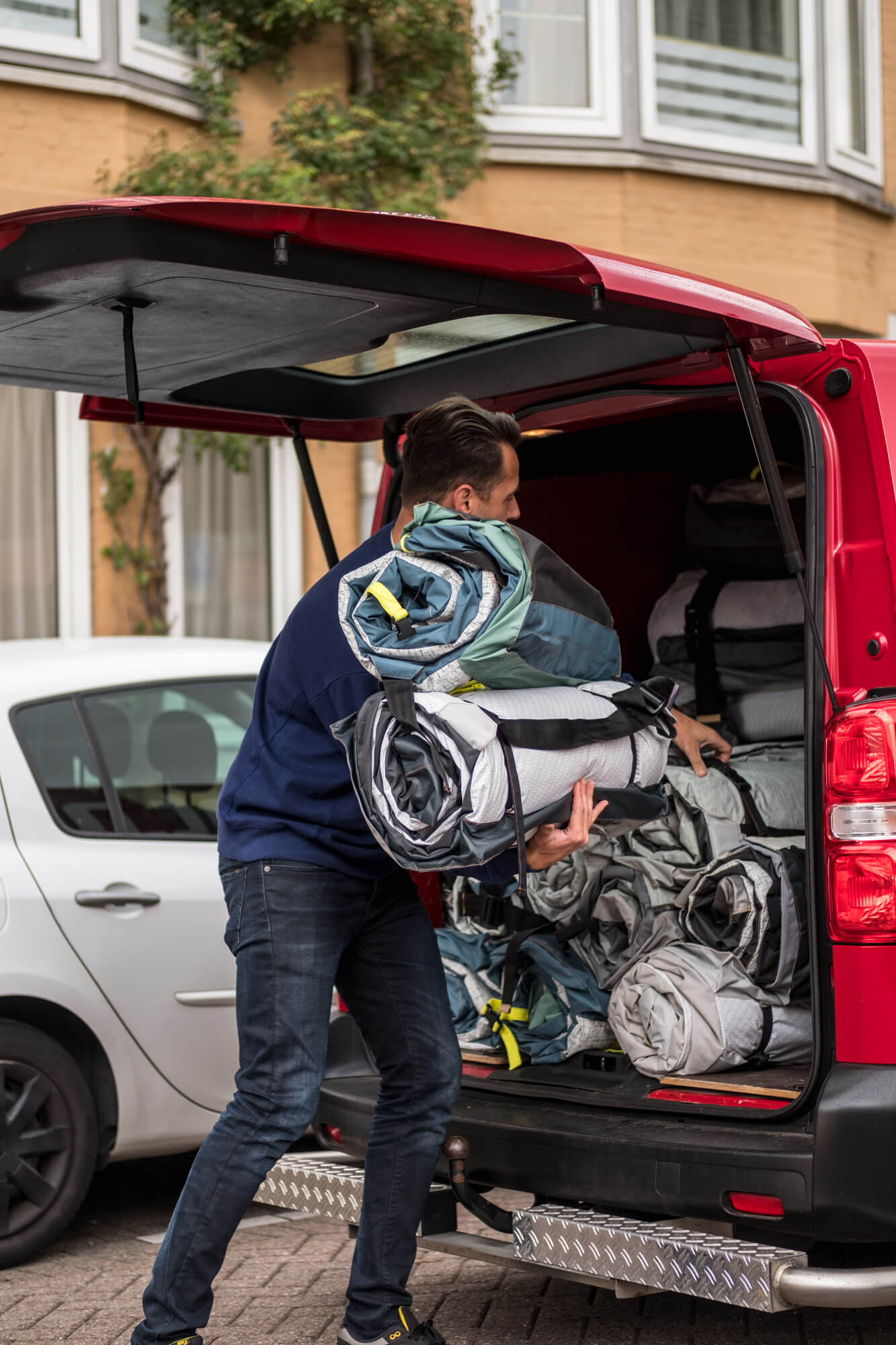
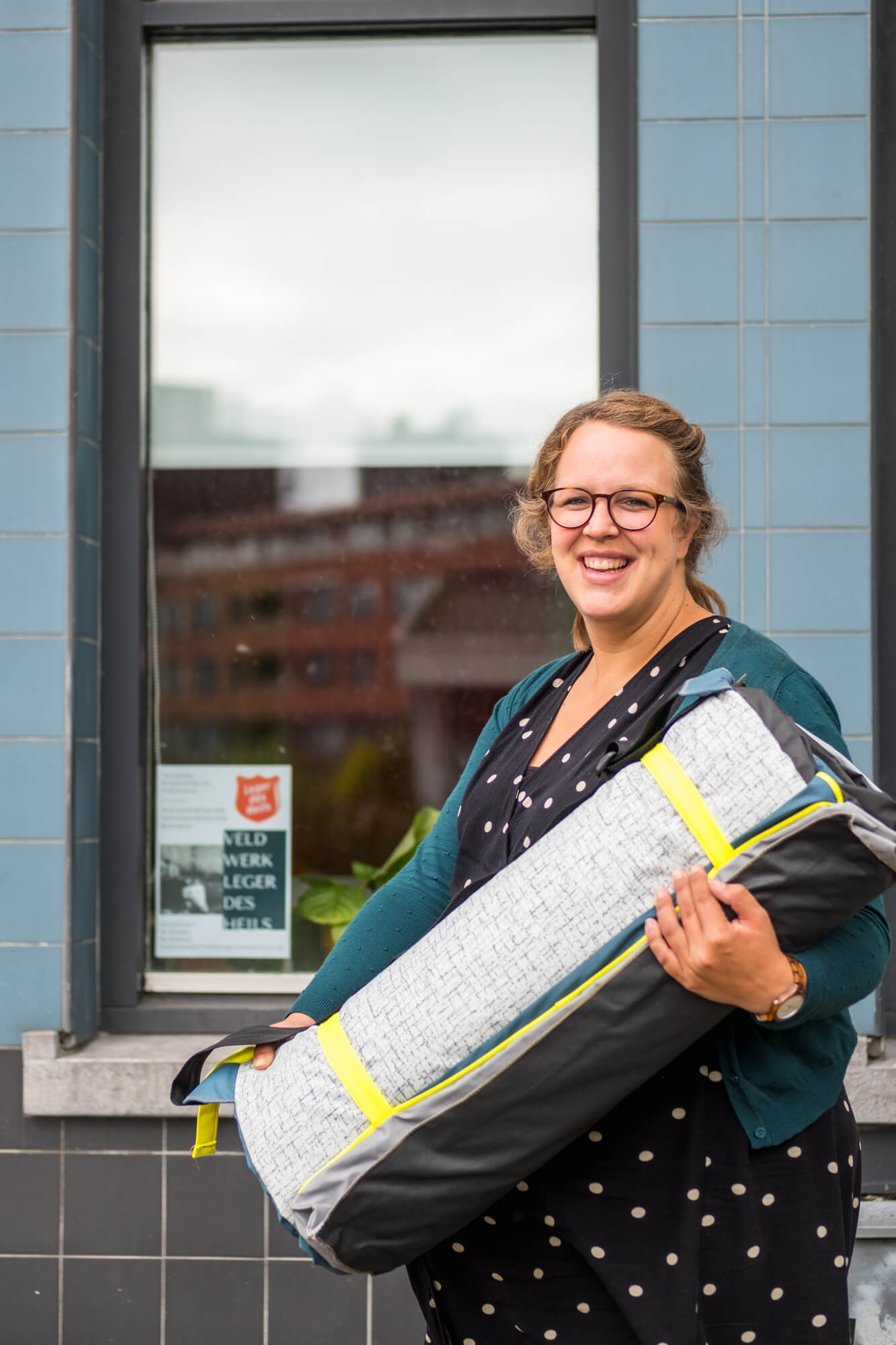
“In the shelter you have to deal with a lot of different people. Sometimes this leads to conflicts. Not long ago there was a man here, a psychiatric patient, who tried to start a fire in his room twice. Because other people were also in danger, we had to send him away. He was suspended for two weeks. In the meantime, he has found a good place, but for that bridging period the Shelterbag was extremely suitable.” – Frank, works since 2007 at the Binnenvest in Leiden.
